Category: Philosophy
May 17, 2011
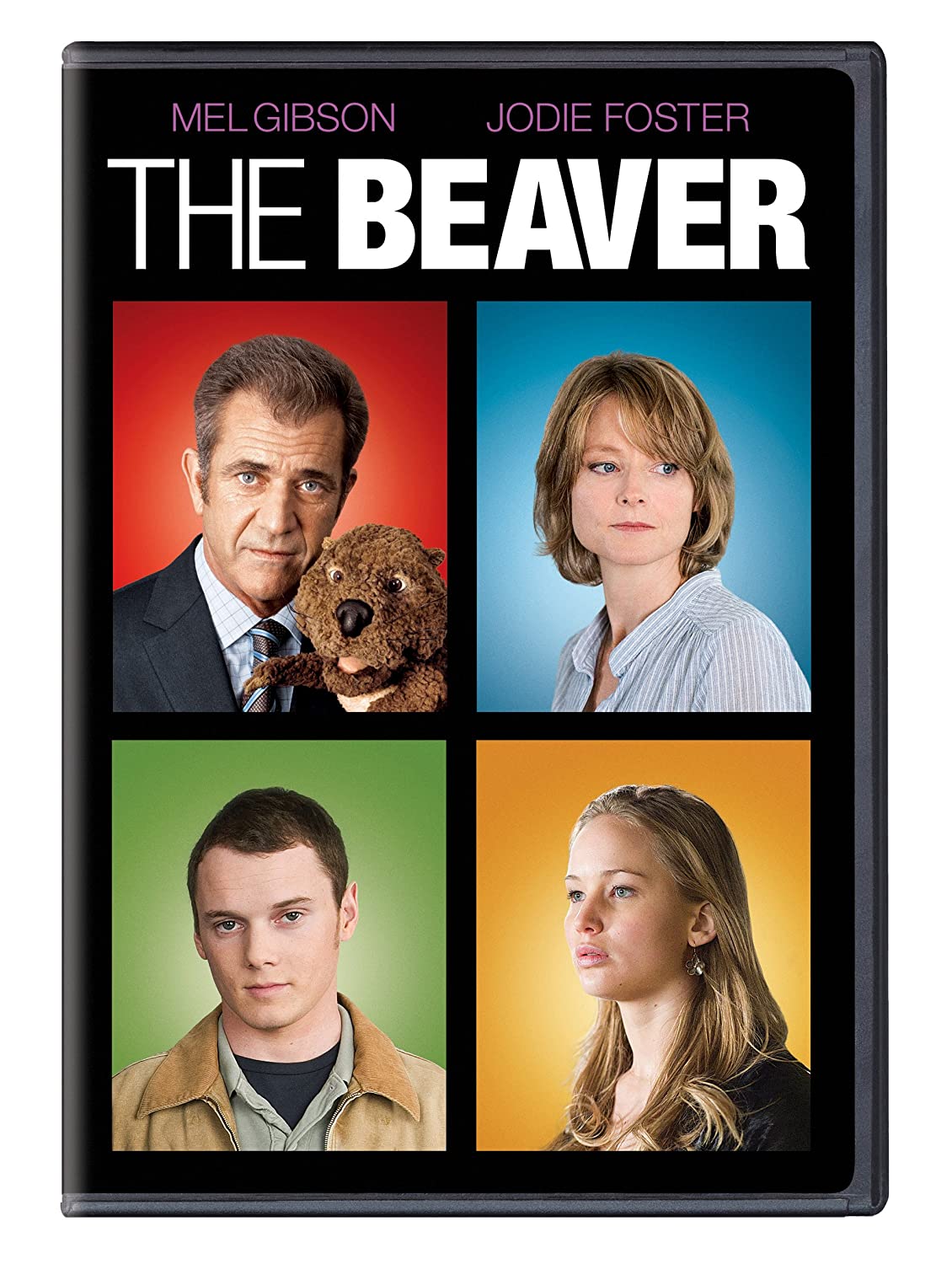
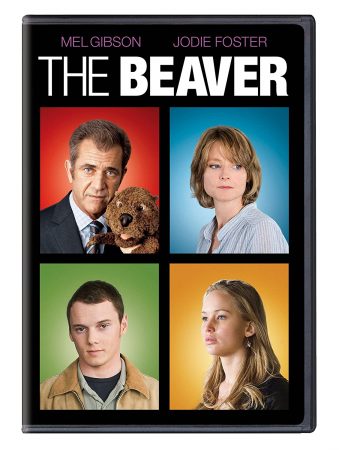
I was reading how the movie “The Beaver” with Mel Gibson and Jodie Foster (director) failed miserably at the box office. The article talked about Jodi Foster’s faith in the film and it’s message, and when asked about the financial disaster said:
“I’ve learned … that if you gauge your self-worth at the box office, you will be a very sorry person.“
How do I , as an artist, gauge my self worth? Do I base it on sales, reviews of my work, the galleries I’m in, the price of my work, how many important people like my images and the awards I receive? Is it possible to be feel successful and not achieve all of these accolades?
External success is a fickle mistress; she may love you one day and not even know you exist another. You’ll never really know her, for her standards change frequently and she’s always looking for her next new lover. To measure success by her standards can lead to an insecure existence and frustration as you try to win her love back by creating work that you hope will please her.
For me, art is an expression of the heart and only one opinion matters; mine. It is my creation and if I love it, then it doesn’t matter what another thinks of it. Success is a internal standard that must be met before any external measures matter. Please do not misunderstand, I still enjoy showing my work, exhibiting it and I do gain pleasure when others like it. But these are not the reasons why I create and those things are not necessary for me to feel good about my work or myself.
Perhaps my resume says it best (https://colethompsonphotography.com/Resume.htm):
Resume:
My art has appeared in numerous exhibitions and publications, and has received numerous awards. And yet my resume does not list those accomplishments, why?
In the past I’ve considered those accolades as the evidence of my success, but I now think differently. My success is no longer measured by the length of my resume, but rather by how I feel about the art that I create.
While I do enjoy exhibiting, seeing my work published and meeting people who appreciate my art, this is an extra benefit of creating, but this is not success itself.
I believe that the best success is achieved internally, not externally.

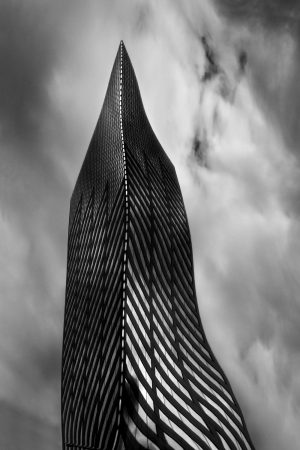
One of the reasons that I’ve been pursuing my recent portfolio entitled The Fountainhead is because I love the philosophy of the novel by the same name. I create these images to honor one of the core principles illustrated in the book; achieving success on one’s own terms.
This has been a perfect project for this purpose because in truth people have not been that enamored with my new images and they may never obtain much exposure, fame or fortune.
But that’s okay! I love these images and have had a wonderful time creating them. And I feel very lucky when I do come across another who appreciates the series because they share my love of architecture or because they can relate to the message of The Fountainhead. For me, this is success.
One of my favorite quotes from The Fountainhead serves as my artist statement for this series. This is an exchange between the main character Howard Roarke who is a young architectural student, and the College Dean who has expelled him for not conforming to the design standards of the day:
- College Dean: My dear fellow, who will let you? (design buildings)
- Howard Roarke: That’s not the point. The point is, who will stop me?
Who can stop me from achieving my own idea of success? No one can.
Cole
January 20, 2011
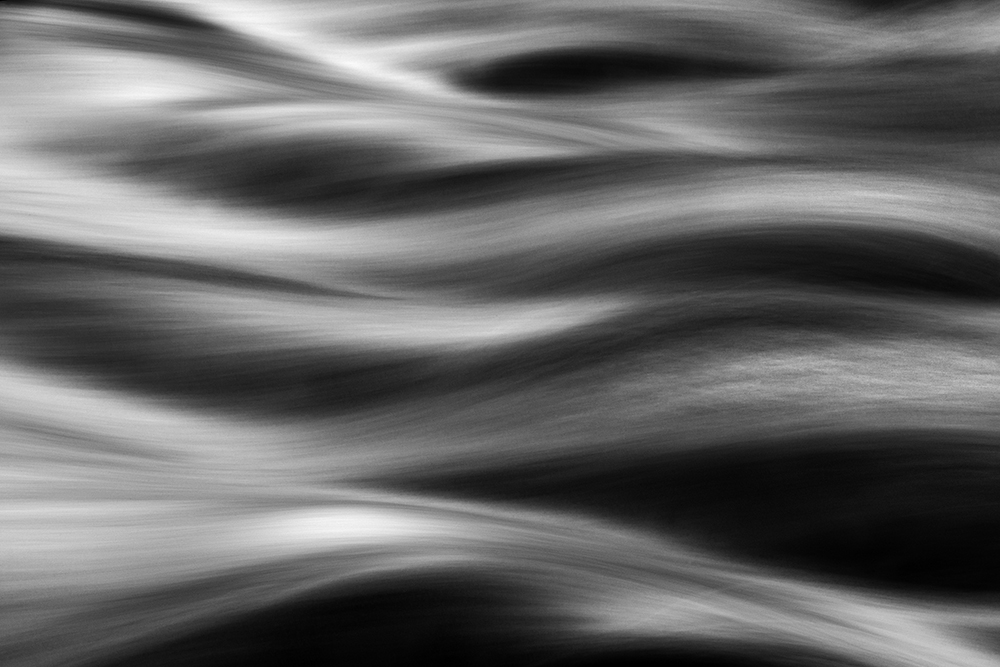
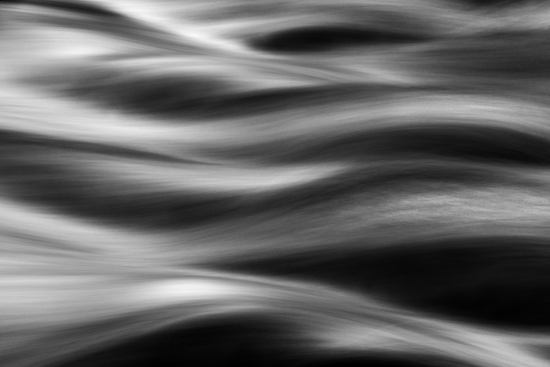
 I’ve just completed filming two DVD workshops, one on “Black and White Photography” in Death Valley and the other on “Long Exposures” filmed at La Jolla in San Diego. During the production a recurring theme kept coming up; that the foundation of a great image is a great composition and there are no substitutes. Using long exposures, HDR, shift-tilt, pinhole, Holga, soft focus, retro treatments, infra-red, or any technique and look are simply poor substitutes if the image is not built upon a solid composition.
I’ve just completed filming two DVD workshops, one on “Black and White Photography” in Death Valley and the other on “Long Exposures” filmed at La Jolla in San Diego. During the production a recurring theme kept coming up; that the foundation of a great image is a great composition and there are no substitutes. Using long exposures, HDR, shift-tilt, pinhole, Holga, soft focus, retro treatments, infra-red, or any technique and look are simply poor substitutes if the image is not built upon a solid composition.
I’ve fallen into this trap before, thinking that a particular “look” would make my work unique and therefore successful. Unique is certainly not a bad thing, but just because I’ve created a unique look doesn’t mean that I’ve created a great image!
My art is always best when I focus on the composition and then use a technique or look to enhance an already great image.
Cole
January 6, 2011
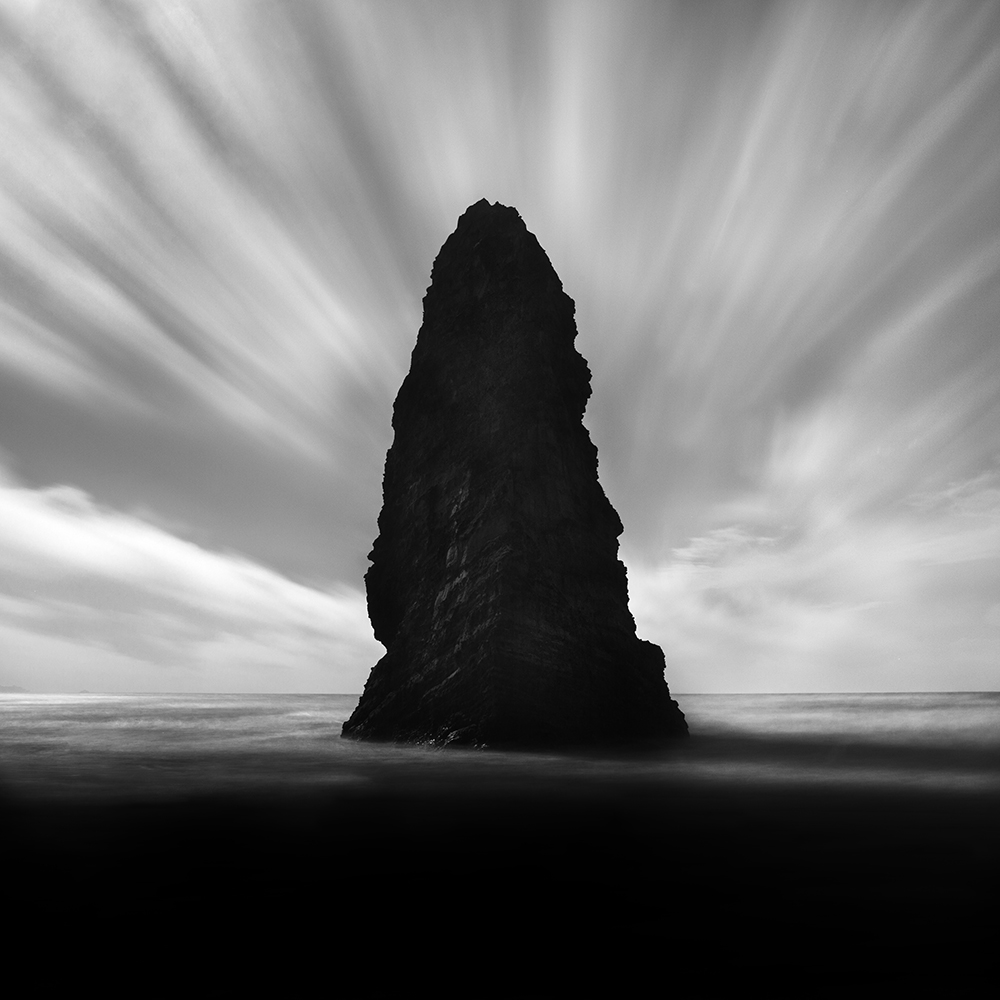
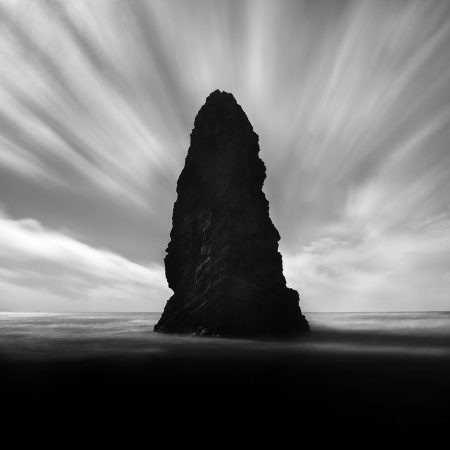
A few blog entries ago I asked the question “What is success to you?” The answers were quite varied because each of us are quite varied and have different reasons for pursuing our art. For some, success means making money, for others it’s about the recognition that comes from getting into a gallery or being published, and for others success is all about personal fulfillment.
For much of my photographic life I assumed that I knew what “success” meant; it was defined by the world as limited editions, high prices, big name galleries and being published. But as I returned to photography and worked hard to achieve these, I noticed that the “standard definition” wasn’t working for me. Achieving those things didn’t bring the satisfaction I thought they would and I would find myself jealous of others successes and would change course to mimic what they were doing.
A turning point came when Brooks Jensen posed a very simple question to me. He asked that when I looked back at my accomplishments, would I prefer to have my work in big name galleries, with limited editions with high price tags, or would I prefer to to have my work sell for affordable prices and be in thousands of homes? He emphasized there was no right or wrong answer, there was only what I wanted.
This caused me to reexamine my motives; why do I pursue photography and what do I want to get from it? It took some time to get past those standard definitions of success that I had lived with for so long, but I began to understand that there is a difference between how the world defines success and what actually brings me satisfaction.
This makes me think of the advice that Polonius, from Shakespeare’s Hamlet, gave to his son:
This above all: to thine own self be true, And it must follow, as the night the day, Thou canst not then be false to any man. Farewell, my blessing season this in thee!
To thine own self be true, such a very simple concept and yet a lesson that can be so elusive! How many times have I sought to win accolades from others about my art when there is only one person’s opinion that really matters; mine. Please don’t get me wrong, I’m not against accolades, or being published, or exhibiting…I’m just against believing that these achievements are a substitute for pleasing ourselves first.
I’ve just recently changed the Resume page on my website. Instead of listing my “accomplishments” as is traditional, I have replaced them with the following:
- My art has appeared in hundreds of exhibitions, numerous publications and has received many awards. And yet my resume does not list those accomplishments, why?
- In the past I’ve considered those accolades as the evidence of my success, but I now think differently. My success is no longer measured by the length of my resume, but rather by how I feel about the art that I create. While I do enjoy exhibiting, seeing my work published and meeting people who appreciate my art, this is an extra benefit of creating, but this is not success itself.
- I believe that the best success is achieved internally, not externally.
I don’t know if I’ve got it exactly right now, if my priorities are perfectly straight and my vision is crystal clear, because it’s a journey. But I do feel that I’m heading in the right direction.
What is your definition of success? To thine own self be true!
Cole
October 7, 2010
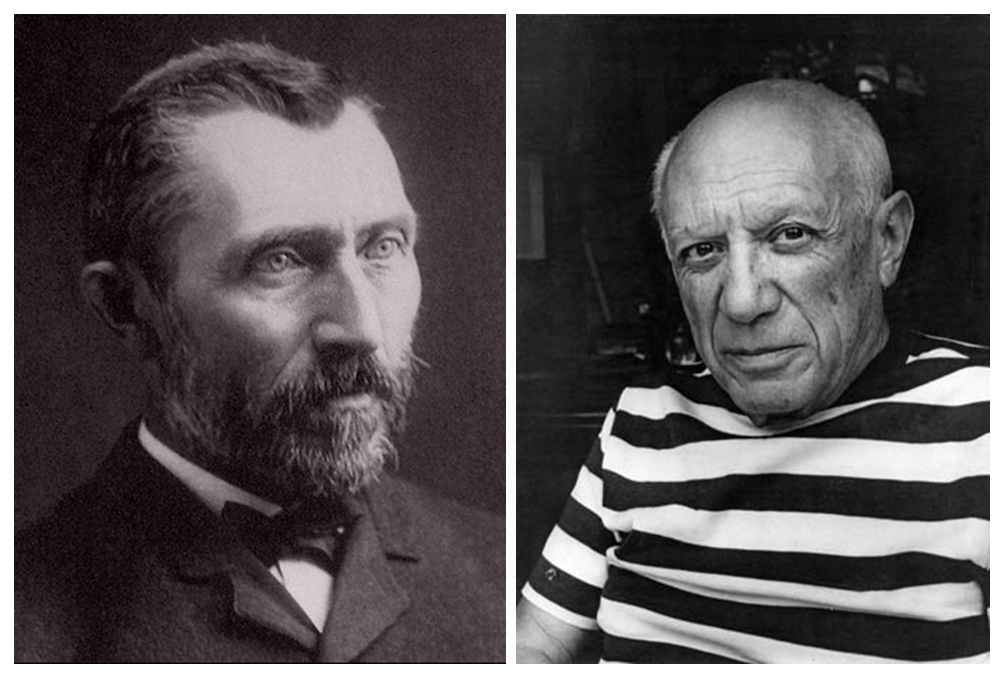
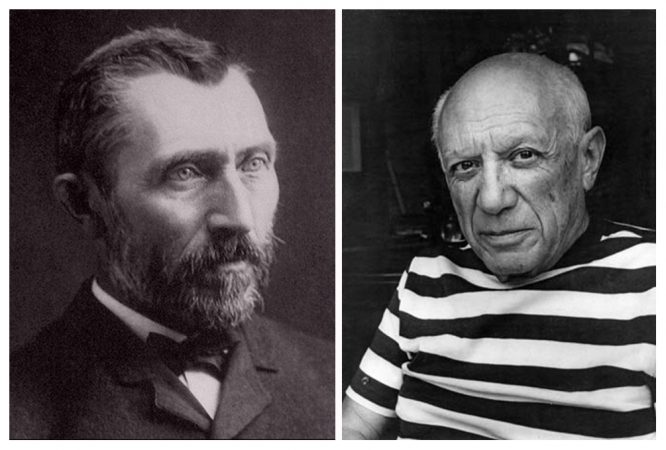
Pablo: Vinnie, how have you been? Wonderful new piece, what do you call it?
Vincent: I’m not sure, maybe “Big Moon in Sky” or something like that. My friend Don suggests I call it “Starry, Starry Night.”
Pablo: Question for you, what paint did you use on this? Is this the 3000 series of paints?
Vincent: No! It’s the new 5000, I wouldn’t be caught dead using the 3000, have you seen the tonal range on those paints? Appalling!
Pablo: I agree, personally I wouldn’t ever purchase a painting if it used those paints.
Vincent: Agreed, what are those other painters thinking?
Pablo: This canvas is nice, what is it?
Vincent: It’s a new canvas, out of Germany and I really like the texture on it. I’ve been searching and searching for the right canvas and I’m just am not happy with anything yet.
Pablo: I know what you mean, I’ve been searching for years for the perfect canvas and will not rest until I do. Hey, I’ve been noticing the perspective on this piece and it leads me to believe that you’re using a 54″ easel? Placing your canvas a little higher are you?
Vincent: Yes but not a 54, it’s a 57 and combined with those new Hartford stools (they have a great padded cushion) I sit so much higher and really like the feeling when I’m working. Plus, they adjust so easily.
Pablo: Wow, I’ll have to check those out, I think Al’s apothecary is carrying them.
Vincent: I heard a rumor that you’re trying some of those new camel hair brushes? Tell me it isn’t so Pablo!
Pablo: Where did you hear that? It’s true, but I’m not telling anyone. They are so much better than the cat hair brushes that I normally use. Have you tried them?
Vincent: I wouldn’t be caught dead with one of those, do you know what would happen people found out that I was using Camel hair! I don’t have to tell the scandal…
Pablo: I see you’re using those new frames from Friar Wilson, how do you like them?
Vincent: Pretty good, they’re a lot cheaper so my margins go way up. I need a little extra “ching” so that I can purchase that new satchel from Mary the Seamstress. Have you seen it, it matches my frock and is really nice for carrying around my art supplies.
Pablo: Yes, those are nice, but not as nice as the ones made by the Maid Vivian!
Vincent: You’re nuts, those look horrible! You’ve got a poor sense of colors Pablo.
Pablo: Me??? You’re the one stuck in the past man, wake up!
Vincent: Look at us, talking about paints, easels and brushes. Does any of this really matter? I mean, do you think photographers sit around and talk like this? I suspect not.
Pablo: Good point. Maybe there’s more to painting than equipment and tools and such?
Vincent: I think so, perhaps it ought to be more about the art?
October 7, 2010
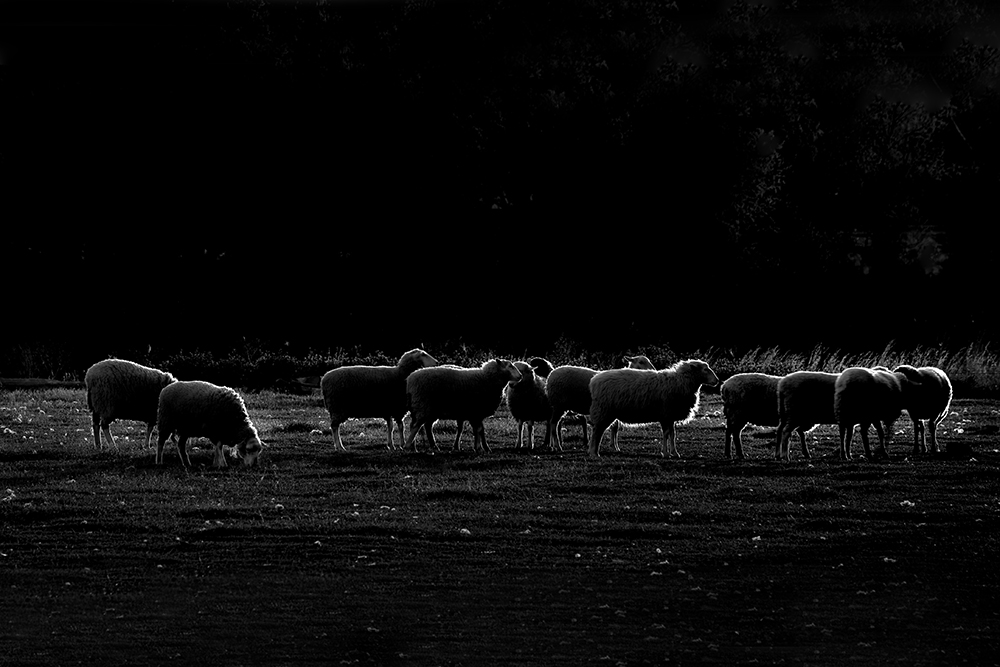

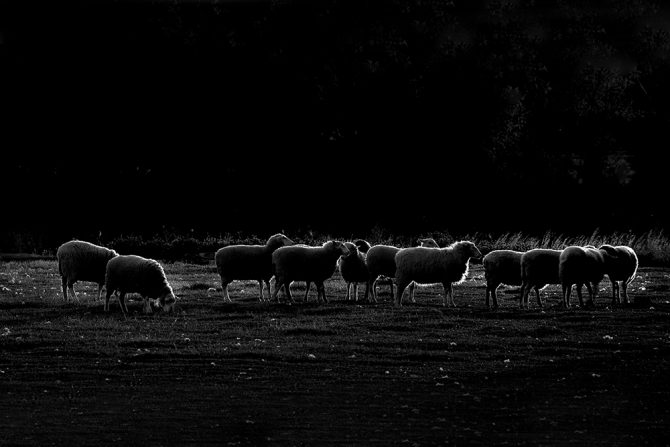
Lightroom vs Photoshop, does it matter?
Nikon vs Canon vs Fuji…who cares!
Film vs Digital…who cares even more!
Those who think the cost or bulk of their equipment reflects how good of a photographer they are.
People who think a prime lens is the key to a great image.
People who think art is a competition; and for them to win, someone else must lose.
“I’m only an amateur” (said in an apologetic voice)
Photographers who complain that photography isn’t taken seriously as an art form, and who then act like a photographer rather than an artist.
People who think that an artist statement needs to sound like a dissertation on the unintelligible, and then go on to prove it.
Photographers who worship processes and equipment more than the art.
Those who don’t understand that photographing a unique subject is not the same as creating unique work.
Artists who take themselves and their art too seriously.
Well meaning people who want to tell you how they would have created your image.
People who look others art and say “anyone could have done that!”
People who are threatened by other people’s success.
Artists who have MFA’s and want you to know about it.
People who mistakenly think that a degree in art makes you an artist.
Photographers who follow “the rules.”
Photographers who say there are rules that must be followed.
Caring what others think of your work and producing work to please others.
And lastly this one just makes me sad: Those who do not believe in themselves and their ability to be creative.
Cole
July 16, 2010
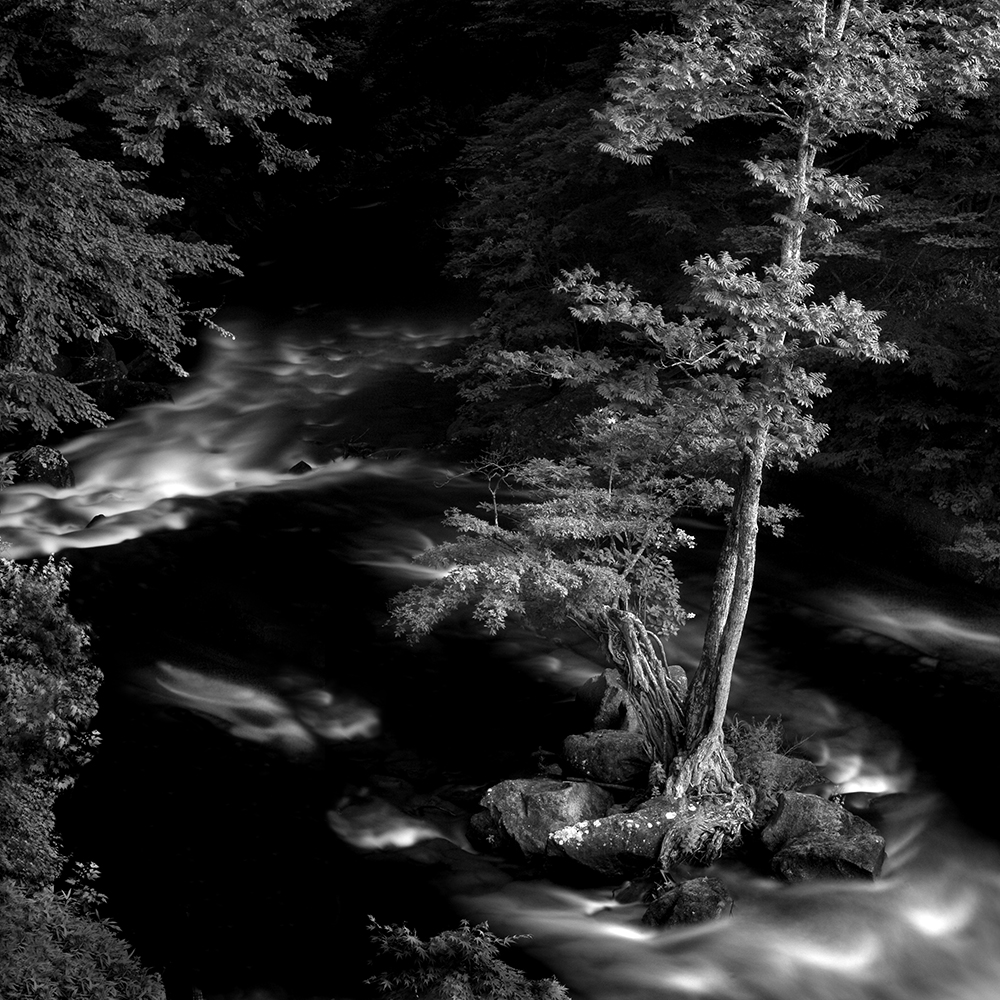
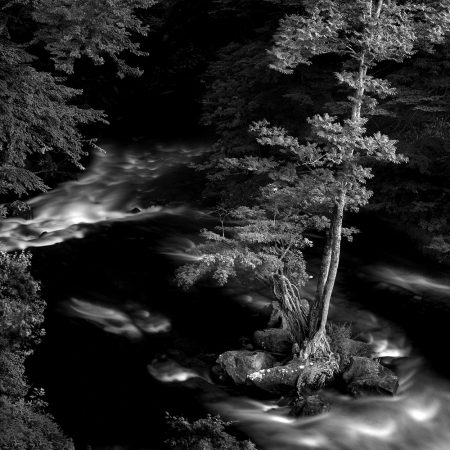
I believe that to succeed in one’s art, one must first identify what success means to them.
Sometimes when you’re younger, success simply means “rich and famous.” But as we get older our values change, we have grown, matured and success is no longer that obvious. Also, we start to realize that success means different things to different people.
So, what does success mean to you? To make it easier to digest and compare answers, let’s keep our definitions to three short items.
1.
2.
3.
I’m anxious to hear everyone’s thoughts.
Cole
P.S. The question “what is success” is not just for “professionals” (I dislike that distinction) but for everyone.
April 20, 2010
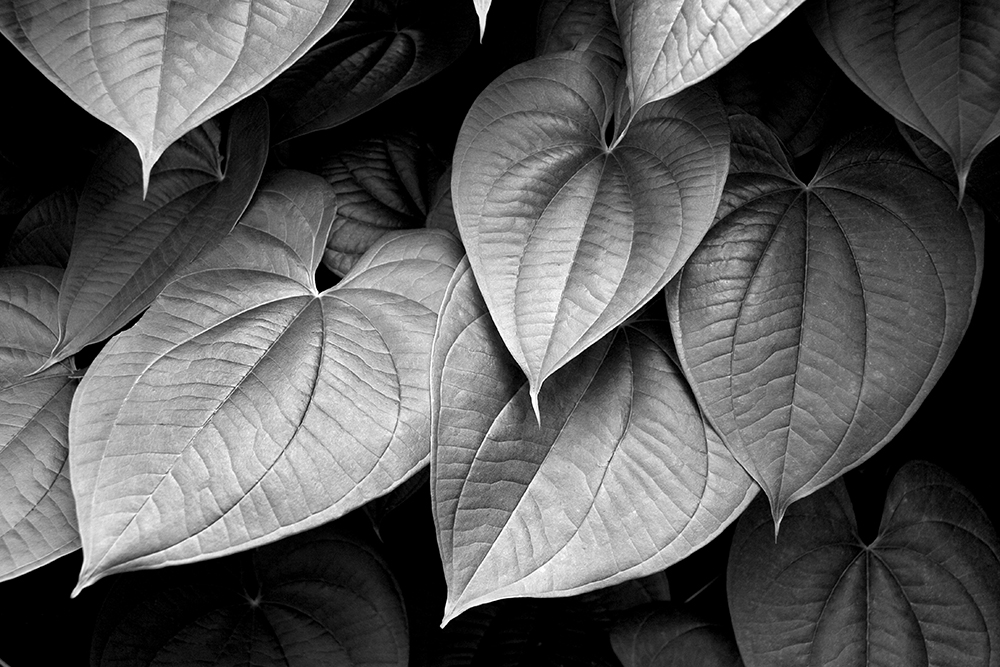
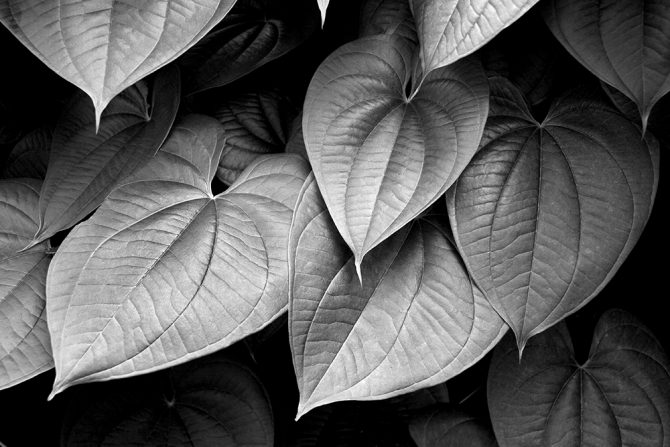
Do you LOVE what you’re doing? Does your current project so excite you that you spend your lunch hour working on it? Do you rush home so that you can use that last hour of sunlight to create a few more images? If not, then perhaps your current project isn’t the right one for you…at this time.
I believe that you must be completely excited about the project you’re working on or it will not be your best work. I’ve seen many pursue a subject simply because it’s “unique” or “different” with the hope that this will be enough to earn them notoriety. However my experience has been that “different for different’s sake” is not enough; there must be real passion in the project or it will fall flat.
I keep a list of potential projects and every new idea, silly or not, goes on this list for future review. With time some of these ideas look even sillier and I wonder what it was I was thinking! However some ideas are really good ones but just not right for us at that moment in time. That’s why I write down every idea, review them periodically and never remove them from the list. You just never know when these ideas and your mood will mesh and a fantastic synergy will be born.
There is such an emphasis in the world today to be different and to get noticed. There are trends that photographers sometimes feel they must follow in order to be in vogue and fit in. There is so much competition that we all feel this desire to be unique so we can rise above the fray. While each of these factors must be considered as we make our long term plans, they should not be our primary focus. What we must focus on is producing art that is uniquely ours, work that is true to our vision and producing something that reflects our passion.
Only then do we stand a chance of being “successful.”
Cole
P. S. I’ve promised several people that I’d create a blog entry on what “success” means, I’ll do that soon.
April 7, 2010
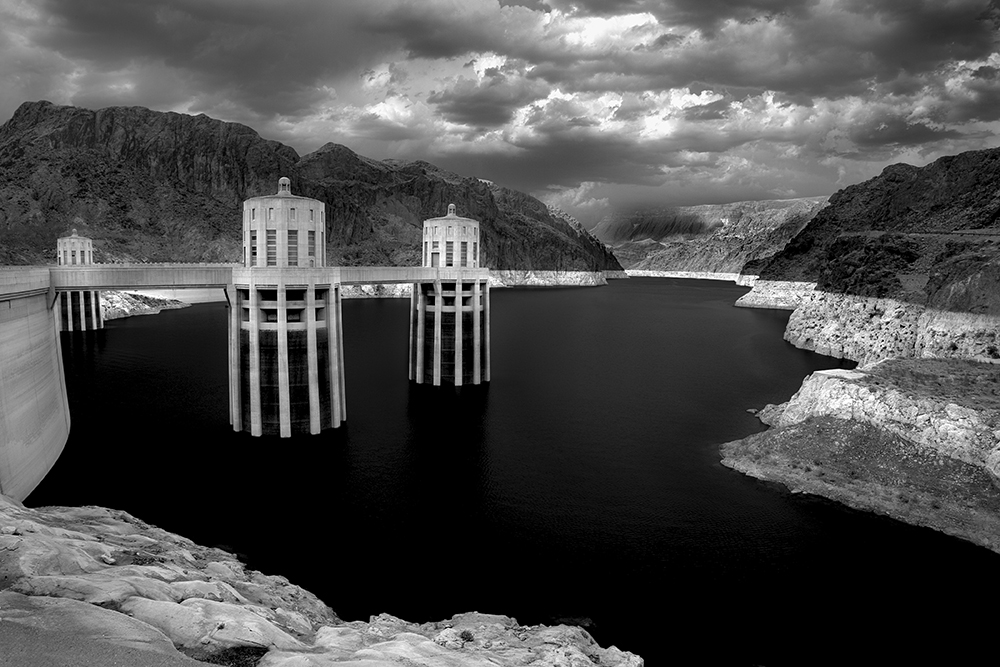
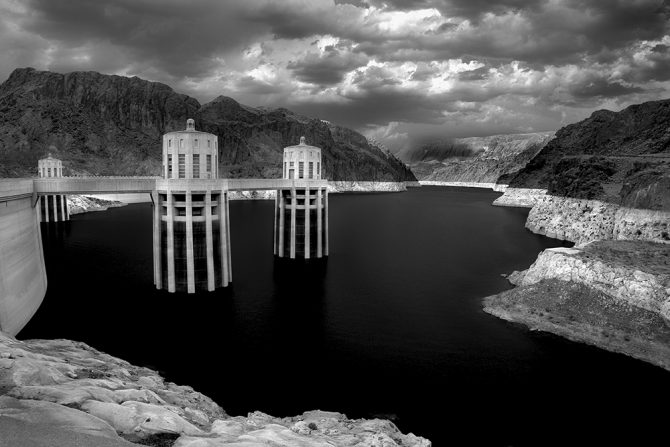
Where do you find the “great” shots? It’s a question I’ve been thinking a lot about lately.
Earlier in my career I thought that you had to go to a great location to get a great shot. You know; Death Valley, the wilds of Africa or the mountains of New Zealand. These are beautiful locations and so it made sense to me that I would produce great images there.
Then I went through a period where I believed that great shots were everywhere and all that was needed was the vision to “see” them. I remember reading a statement by Edward Weston, who infirm and confined to a chair said that he ought to be able to look down at his feet and find a great image.
That’s a great theory, but what’s the reality? Does location contribute to the creative process? Can I really find great images in my own back yard?
My actual experience has been mixed; I have been to some great locations that have produced some great shots but there have been other times when I couldn’t see a thing, only to find another photographer had created incredible work at the same place. I would look at their images and marvel how it was that I didn’t see that. Conversely I’ve also been to some uninspiring locations and produced some wonderful images that others had passed by.
My current thought is that creating a great shot is like panning for gold. There are always a few nuggets laying on the surface, but for the most part the gold is hidden beneath the surface and you must really work hard to find it. So while beautiful locations have produced some great work for me (gold nuggets), the bulk of my images (gold dust) came about from hard work.
I have noticed that great locations can be inspirational, but without vision I’m only likely to see the shots that everyone else has photographed before. After all, when a gold nugget is large enough to be noticed, everyone else notices it too! Think about how many similar images of Yosemite you have seen, that’s because gold nuggets are easy to see.
A short time ago I was in a creative slump and went on three trips. At the start of each trip I really believed that the location would inspire me to create great images, but as each trip produced mediocre images I blamed it on the weather, the boring landscape or my lack of time. Eventually I had to face the reality that it wasn’t the location, it was me. My conclusion: I’d rather be inspired in a uninspiring location than to be uninspired in a inspiring place.
So how would I answer the question “Where do you find the ‘Great’ shots?” I think you find them wherever you’re at and while location can help, it can never take the place of vision.
Cole
February 22, 2010
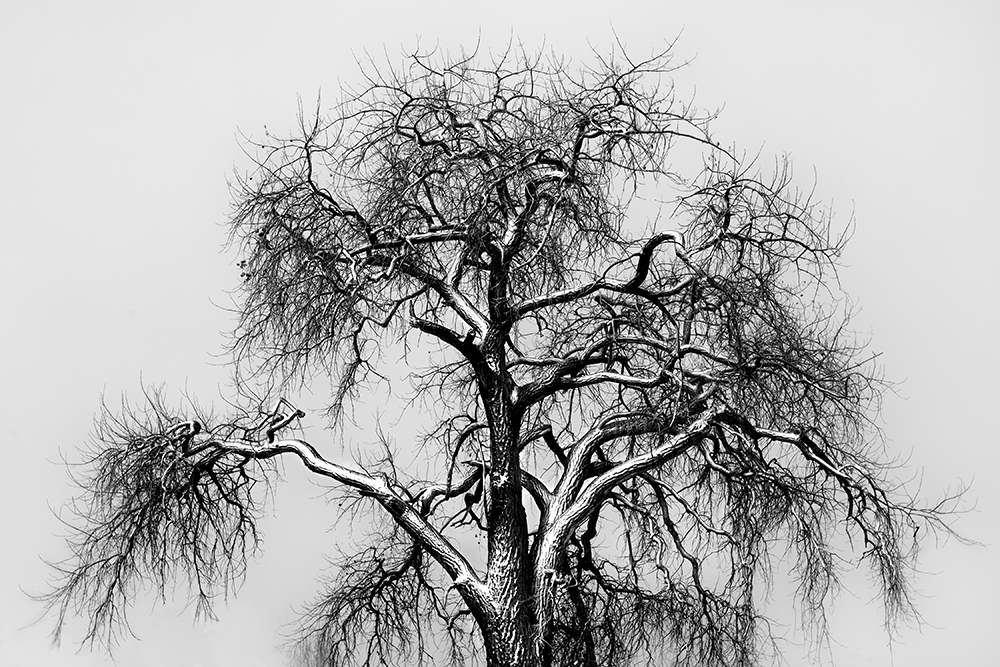

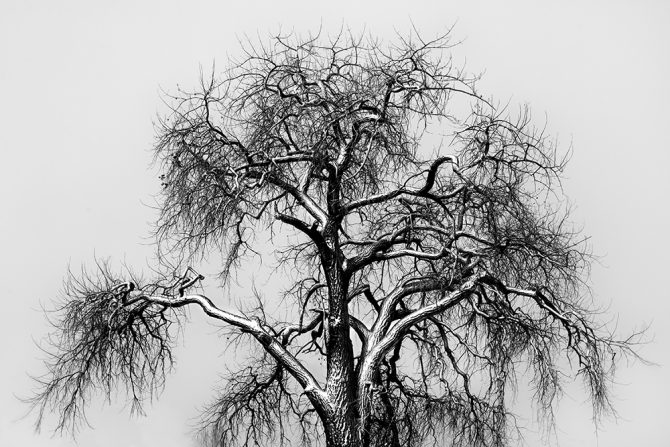
When people learn that my images are created digitally they often ask “do you manipulate your images?” To which I enthusiastically answer “Yes!”
Everything I do starting with how I frame the image, expose and process it, is intended to manipulate that image into alignment with my vision. Rarely, if ever, do I try to recreate what I saw with my eyes. I believe that my vision is the difference between me being a photographer who documents and an artist who creates. When I set up my camera at a scene, I already know what I want that image to look like and rarely does it resemble reality.
Some have suggested that “manipulation” is a “photographic sin” and I’ve heard others say that you shouldn’t do anything in Photoshop that you couldn’t do in the darkroom. I find it odd that we should freeze our progress and limit ourselves to the technology of the 1990’s under some sense of arbitrary purity, why not freeze our techniques to that of the 1890’s? My feeling is that art should be about the art, and not the process.
Many worship Ansel Adams as the master of photographic purity, and one that faithfully reproduced the scene with minimal manipulation. Recently I saw a series of photographs that were taken from the very same spot where Ansel had taken his most famous Yosemite images, but with a point and shoot camera. The images were striking because they so clearly revealed, in that side-by-side comparison, how much Adams manipulated his images. In my opinion that’s why Ansel was an artist, because he didn’t simply document a scene but created images that matched his unique vision. He was a master of “manipulation” and his work certainly did not represent reality.
Should photographers have any limits? I don’t think so; does a painter have limits, or an actor or musician? How would an art advance or a person grow if there was a list of things they could and couldn’t do?
But individually, each one of us will set personal limits, I certainly do. There are things that I just don’t do, not because I consider them wrong but because they do not fit within the vision and style of my work. For example I choose not to “add” to an image such as adding a person or object, but there are others whose work is completely based on adding such as Dominic Rouse. I love what Dominic does with his images and respect his work.
I don’t think there’s a right or wrong with art there shouldn’t be any do’s or don’ts. Ignore the world and it’s experts, find your own vision and go wherever that takes you.
Do I manipulate my images? You bet I do!
Cole
January 24, 2010
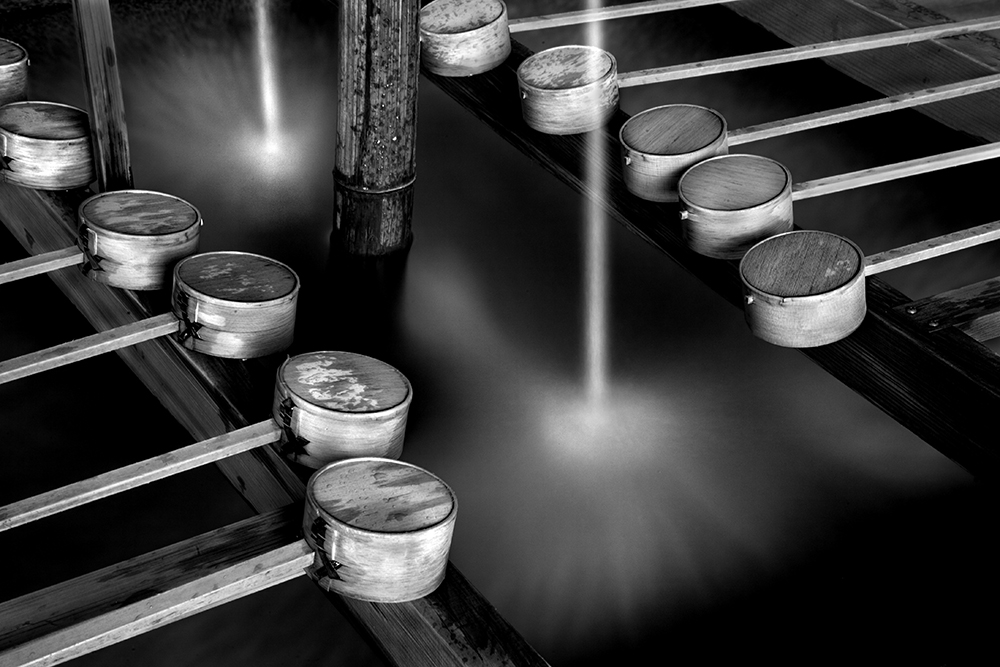
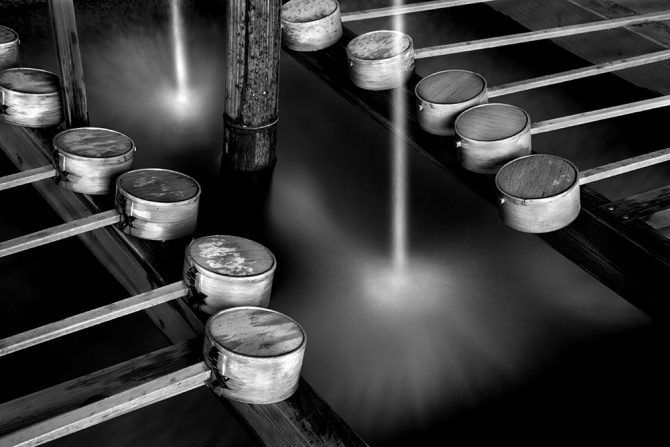
I just read a quote that really struck a chord with me. I wondered what wise old sage had said it; perhaps one of the grand masters of photography or maybe an artist living a Monk-like life? No, these wise words come from the mouth of a mere babe, an NYU student.
“True artists pick their own perspectives – they live and love their way even if they must live and love alone. Praise and applause are not priorities of artists: what matters most is the fulfillment that comes with being oneself.”
Michael William Nebab, NYU Student
It’s incredible when someone can express such a large thought with only a few simple words. Well done Michael.
Do you have a quote that you find meaningful and inspirational? I’d love to hear it.
Cole
